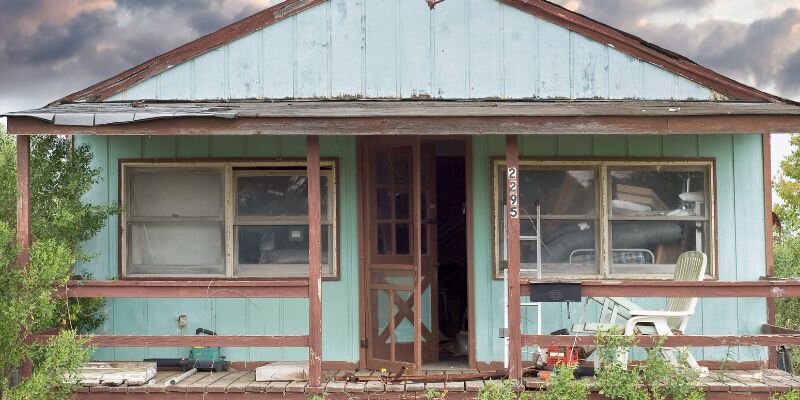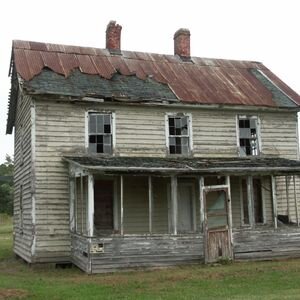
Understanding Abandoned Property Laws in the Twin Cities
Understanding the intricacies of abandoned property laws in the Twin Cities is crucial for anyone interested in claiming such real estate. In Minnesota, properties are typically considered abandoned if they show apparent neglect or disuse, such as unpaid taxes or utility bills and lack of maintenance.
Potential claimants must navigate the adverse possession process to legally claim abandoned real estate. This process requires open and continuous property occupancy for a statutory period—usually 15 years in Minnesota—while meeting specific legal requirements. Additionally, those interested should know local ordinances within Minneapolis and St. Paul.
Paul may impose further conditions on occupying or rehabilitating abandoned properties. Researching county records to determine any liens or encumbrances is also essential, as these factors can significantly impact one’s ability to successfully claim an abandoned home.
If people who want to claim ownership rights in the Twin Cities area understand these factors, they will be able to confidently and effectively handle the legal system.
How to Locate Abandoned Properties for Sale in the Twin Cities Region
To find foreclosed homes for sale in the Twin Cities area, you need to do research and make connections. Start by looking into tools provided by your local government. For example, county assessor websites often have databases with a list of properties that owe taxes or have code violations.
These signs can be signs of loss. You can also look at public records at the city planning department, which may show abandoned or unclaimed sites.
Engaging with investor home buyers in Richfield who specialize in distressed properties can provide valuable insights and leads on potential opportunities. Networking with community groups and attending neighborhood meetings may uncover information about abandoned homes.
Online real estate investment sites and forums are another great way to find properties that are for sale. Driving through neighborhoods looking for houses that are obviously not being taken care of is a good way to find possible purchase targets.
Legal Procedures for Acquiring Abandoned Real Estate in Twin Cities

Acquiring abandoned real estate in the Twin Cities involves navigating legal procedures and regulations to ensure compliance with local laws. First, potential claimants must conduct a thorough title search to verify the property’s ownership status and confirm its abandonment.
To do this, you need to go to the county recorder’s office or an online library and look up public records. Once it is proven, people who are interested must file a petition for adverse possession or a quiet title action in court, based on the specifics of the case.
Adverse possession requires continuous and open occupation of the property for a statutorily defined period, which typically ranges from several years, during which claimants must demonstrate intent to possess and improve the property without permission from the original owner. It is crucial for claimants also to pay all back taxes, liens, and any outstanding bills associated with the property, as this demonstrates responsibility and further supports their case in court.
Hiring a real estate lawyer who specializes in Minnesota property law can be very helpful during this complicated process. They can make sure that all the legal requirements are met and increase the chances of successfully taking over abandoned properties in the Minneapolis-St. Paul area. To understand how Henry Home Buyer works when assisting clients with distressed or abandoned properties, review our detailed process guide.
The Role of Local Government Agencies in Managing Abandoned Properties in Twin Cities
In the Twin Cities, local government agencies play a crucial role in managing abandoned properties, ensuring they are handled efficiently and responsibly. The Housing and Redevelopment Authority (HRA) and the Department of Planning and Economic Development are pivotal in identifying, securing, and maintaining abandoned real estate.
These groups work together to check the status of properties, figure out who owns them legally, and fix zoning or code issues. They also make it easier for potential purchasers and city officials to talk to each other, which speeds up the process of buying.
Local government bodies aim to repurpose these neglected properties for community development projects or affordable housing solutions through initiatives like tax forfeiture sales and land banks. By implementing strategic planning and leveraging public resources, they strive to mitigate urban blight while revitalizing neighborhoods across Minneapolis-Saint Paul.
Through partnerships with non-profits, these agencies can also better handle environmental issues that come up with abandoned sites, which makes the neighborhood safer and more active overall.
Importance of Due Diligence Before Purchasing Abandoned Properties in the Twin Cities

Conducting thorough due diligence is crucial before purchasing abandoned real estate in the Twin Cities. Potential buyers must meticulously research property titles to uncover any existing liens, encumbrances, or legal disputes that could complicate the acquisition process.
Knowing the property’s history and zoning rules will help you avoid problems and make sure you follow the rules for abandoned properties in your area. Also, checking the structural integrity of an empty building is important to avoid expensive repairs later on.
Buyers should also look at market conditions and area trends in Minneapolis and St. Paul to get a sense of how good an investment the property will be in the future.
Talking to local real estate agents who are experienced with dealing with complicated abandoned property deals can give investors a lot of useful information and help them make smart choices while lowering the risks that come with these one-of-a-kind chances.
Potential Risks Involved with Investing in Twin Cities Abandoned Real Estate Markets
Investing in abandoned real estate in the Twin Cities can be fraught with potential risks that require careful consideration. One significant risk is the uncertainty surrounding property titles, as abandoned properties may come with unclear ownership or unresolved liens that complicate the acquisition process.
Also, these homes may have secret structural problems from being ignored, which could mean expensive repairs and problems during renovations. Legal challenges are also a risk, especially if the claim is disputed by the former owners or their heirs, or if there are disagreements about zoning and land use rules.
Furthermore, the neighborhood’s economic stability and crime rates can impact the property’s long-term value and marketability, adding another layer of risk for investors. Potential buyers must conduct thorough due diligence, including title searches and property inspections, to mitigate these risks when considering investments in the Twin Cities’ abandoned real estate markets.
Financial Benefits of Rehabilitating Abandoned Buildings in the Greater Minneapolis Area
Fixing up old houses in the Greater Minneapolis Area can make investors and people in the community a lot of money. Taking back these buildings not only brings life back to empty urban areas, but it also helps the Twin Cities’ economy grow as a whole.
Properly transformed buildings into viable housing or commercial space significantly increase property owners’ real estate value. For example, we buy houses in Roseville and help owners convert them to attract new businesses and residents, boosting local employment opportunities and enhancing neighborhood desirability.
Investors can also use the many tax breaks and grants that state and local governments offer to support the rebuilding of cities. These financial rewards can help cover a lot of the costs of renovations, making the business a profitable one.
Moreover, renovated properties typically reduce crime rates and improve public safety, further elevating property values in surrounding areas. These initiatives foster a more vibrant community atmosphere and promote sustainable development while preserving the architectural heritage of Minneapolis neighborhoods.
Exploring Community Impact: Revitalizing Neighborhoods Through Redeveloped Properties
Redeveloping abandoned land in the Twin Cities to bring life back to places that have been neglected can have a big effect on the community as a whole. People and developers improve the look of the area, boost the economy, and raise property prices by claiming and changing these properties.
Redeveloping vacant houses or commercial spaces can reduce crime rates by eliminating potential sites for illegal activities, creating a safer environment for residents. The influx of new businesses and housing options attracts more people to the area, fostering a sense of community pride and cohesion.
The demand for local services and amenities goes up as a result of these initiatives, which is great for both established companies and startups in the area. Entire neighborhoods are boosted by this investment cycle, which makes them livelier and more appealing as places to live.
Through strategic planning and collaboration with local authorities, redeveloped properties play a crucial role in revitalizing urban landscapes in an inclusive manner that benefits current residents while welcoming newcomers.
Expert Tips on Negotiating Purchase Agreements for Abandoned Properties Near You
It is essential to have a strategic frame of mind while negotiating purchase agreements for foreclosed properties in the Twin Cities. Before entering into any negotiations, it is a good idea to learn as much as can be found about the property’s past, including any liens or taxes that may still be outstanding.
Engaging a real estate attorney familiar with local laws is advisable to ensure all legal aspects are addressed correctly. Connecting with local real estate agents who specialize in distressed or abandoned properties is beneficial, as they can offer insights into market values and potential renovation costs.
Be ready to negotiate conditions that give you time to investigate and evaluate the property’s condition when you discuss the arrangements. Sellers that are in a hurry to sell may be more amenable to a rapid closing if they know you have financing in place.
Understanding city regulations regarding abandoned properties is essential, as compliance with zoning laws and rehabilitation requirements can significantly influence negotiation strategies.
Understanding Tax Implications When Acquiring Foreclosed or Abandoned Homes
When acquiring foreclosed or abandoned homes in the Twin Cities, it is crucial to understand the tax implications involved. Buyers should be aware that property taxes may have accumulated on these properties, and they often become the financial responsibility of the new owner upon acquisition.
Do a lot of study to see if the foreclosed home has any unpaid property taxes or liens on it. It is very important to know how these unpaid taxes can affect your business as a whole.
Additionally, buyers should consider potential capital gains taxes when selling an acquired property at a profit in the future. Consulting with a tax professional experienced in real estate transactions can offer valuable insights into deductions and credits available for rehabilitation expenses, which might help offset some initial costs associated with revitalizing abandoned properties.
Investors can better deal with the difficulties of buying distressed properties and avoid unexpected costs by keeping up with local tax laws and rules that apply to real estate in Minnesota, especially in Minneapolis and St. Paul. Understanding probate for real estate in the Twin Cities is equally essential, as navigating probate laws, court procedures, and property title transfers ensures a smooth and compliant transaction.
Navigating Minnesota’s Unclaimed Property Database for Twin Cities Residents

Navigating Minnesota’s Unclaimed Property Database is crucial for Twin Cities residents interested in claiming abandoned real estate. This database, managed by the Minnesota Department of Commerce, holds valuable information on unclaimed properties across the state.
For those living in Minneapolis or St. Paul, accessing this resource can reveal opportunities to acquire real estate left unclaimed due to factors like unpaid taxes or owner neglect.
To begin with, Twin Cities residents should visit the official website of Minnesota’s Unclaimed Property program and utilize its search tools. These tools allow users to input personal details such as names and addresses to locate potential claims connected to them. It’s essential for individuals to carefully review all the entries that appear in their search results, as these records might include hidden gems like forgotten plots of land or residential properties with untapped potential.
Understanding how to navigate this database effectively helps identify abandoned real estate and ensures compliance with state regulations surrounding property claims. With diligence and attention to detail, residents can uncover and potentially reclaim valuable assets within the Twin Cities area through this essential online resource.
Step-by-step Guide to Claiming Unclaimed Property in Minneapolis and St. Paul
Following a specific process is essential to successfully claiming unclaimed real estate in Minneapolis and St. Paul.
Conduct thorough research to identify properties classified as abandoned or unclaimed, which is often done through county records or online databases maintained by the local government. Once you’ve pinpointed a property, check for any existing liens or back taxes that might be attached; addressing these financial obligations is crucial before proceeding.
Next, contact the appropriate municipal authorities in Minneapolis or St. Paul to inquire about the necessary paperwork and legal requirements for claiming abandoned real estate.
This typically involves filing a petition or application with detailed information about the property and your intent to claim it. After submitting your paperwork, you may need to wait for a public notice period during which previous owners can respond if they wish to reclaim their property rights.
If no objections arise, you may be granted legal ownership following a court hearing. However, to avoid potential legal issues, ensure compliance with all local regulations throughout the process. For assistance navigating your next property claim, contact Henry Home Buyer today.
Helpful Twin Cities Blog Articles
- Contingency Clauses for Selling Your Home in the Twin Cities
- Selling A House With Code Violations In the Twin Cities
- Selling Your House As-is In the Twin Cities
- Essential Paperwork and Tips for Selling Your Twin Cities Home By Owner
- Understanding Who Covers Appraisal And Inspection In the Twin Cities
- Understanding Inheritance Laws For Real Estate In The Twin Cities
- Selling A House With Squatters In The Twin Cities
- Home Staging Strategies For Selling Your Twin Cities Property
- How To Claim Abandoned Real Estate In The Twin Cities
- Understanding Probate For Real Estate In The Twin Cities

| STATE OF MINNESOTA | RATE OF INTEREST | ST. PAUL, MN | INSURANCE COMPANIES | INSURANCE | STATUTES |
| SAFE DEPOSIT | SAFE DEPOSIT BOXES | MISDEMEANOR | MINNESOTA STATUTES |
